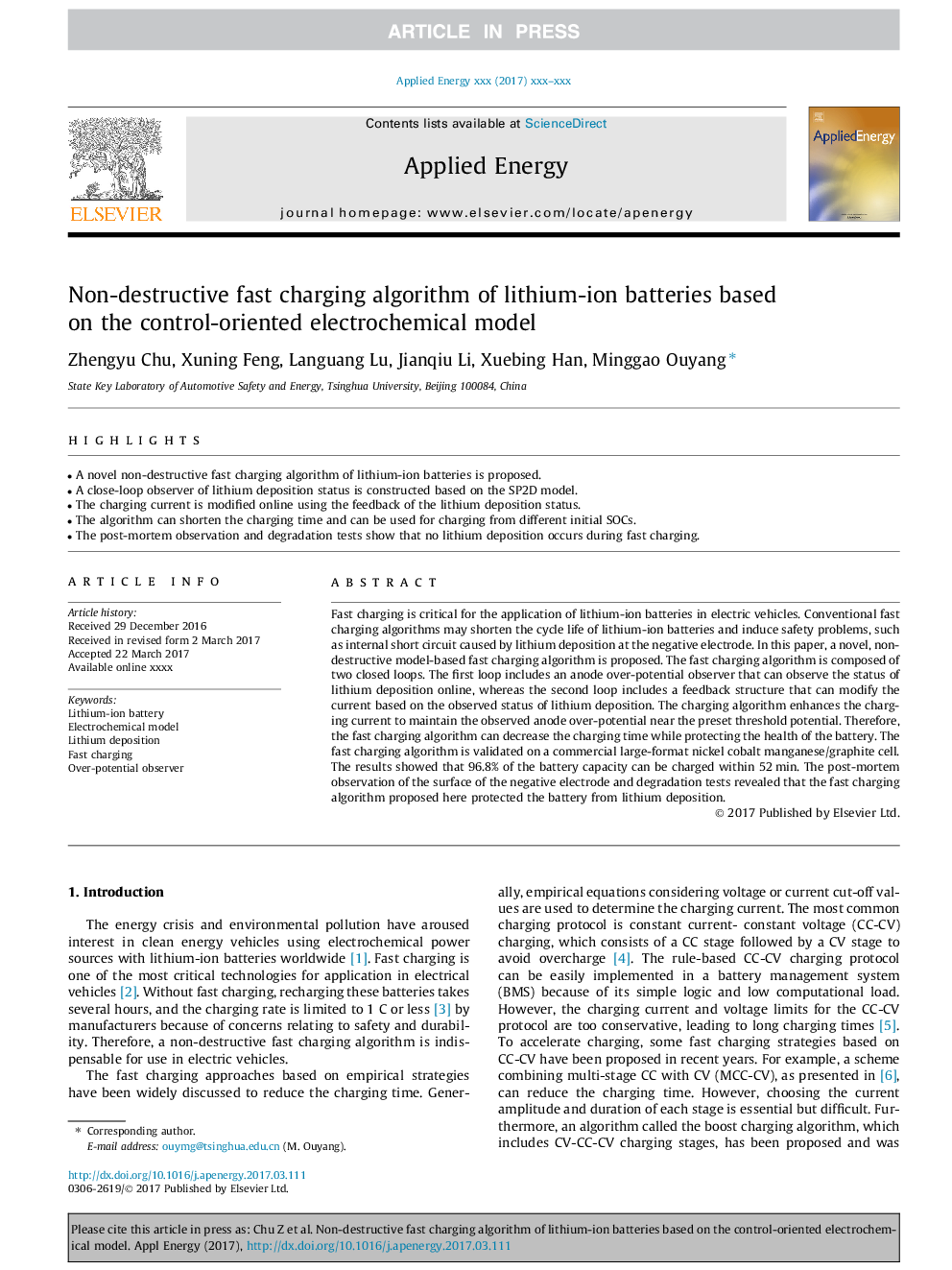ترجمه فارسی عنوان مقاله
الگوریتم شارژ سریع غیرمخرب باتری های لیتیوم یون بر اساس مدل الکتروشیمیایی کنترل گرا
عنوان انگلیسی
Non-destructive fast charging algorithm of lithium-ion batteries based on the control-oriented electrochemical model
| کد مقاله | سال انتشار | تعداد صفحات مقاله انگلیسی |
|---|---|---|
| 150436 | 2017 | 11 صفحه PDF |
منبع

Publisher : Elsevier - Science Direct (الزویر - ساینس دایرکت)
Journal : Applied Energy, Volume 204, 15 October 2017, Pages 1240-1250
ترجمه کلمات کلیدی
باتری لیتیوم یون، مدل الکتروشیمیایی، رسوب لیتیم، شارژ سریع ناظر بیش از حد بالقوه،
کلمات کلیدی انگلیسی
Lithium-ion battery; Electrochemical model; Lithium deposition; Fast charging; Over-potential observer;

